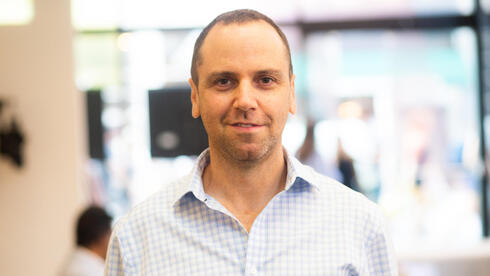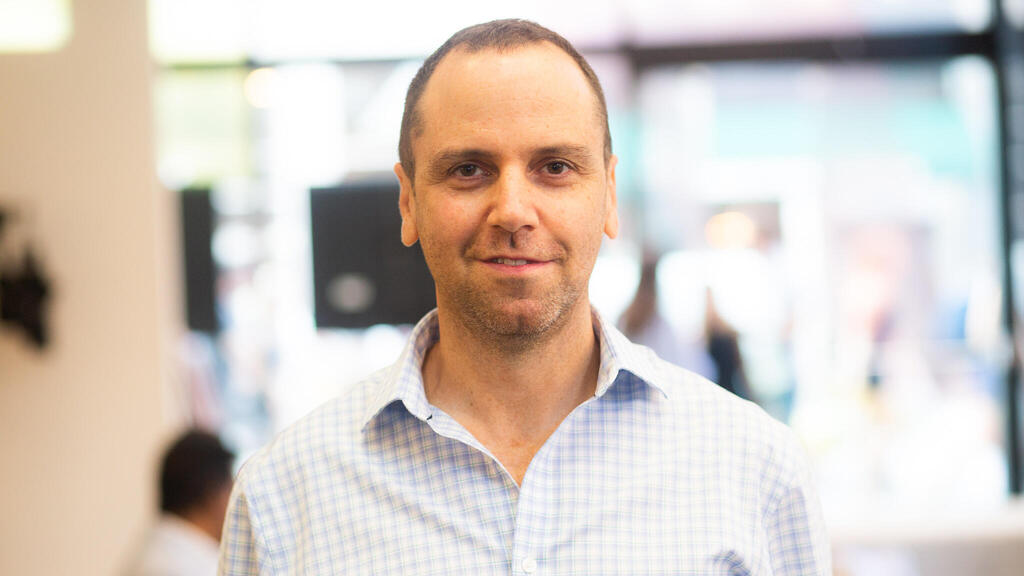
2022 VC Survey
How will the recent layoffs shape the tech world in 2023?
Israeli Mapped Ventures Managing Partner Guy Franklin joined CTech for its 2022 VC Survey to discuss all things tech as we settle into a year of uncertainty.
“The layoffs that large corporations have made in the last few months have allowed smaller startups to hire experienced talent at reasonable salaries as opposed to 2021,” explained Guy Franklin, Managing Partner at Israeli Mapped Ventures. “Just last year, it was almost impossible for a young startup without a track record to compete against heavily funded startups... today, that has changed.”
As the tech world settles into 2023, there is still uncertainty within the sector amid fears of a recession and a talent crisis. For the VC, which is based in New York, the Big Apple remains the best place to be.
“New York is the number one location for Israeli startups looking to grow and expand; we see an increasing number of Israeli startups launching operations in New York and hiring people. I expect this trend to continue in 2023, even in a slow investment climate… companies still need to be close to their target market and their investors.”
Name of fund/fund: Israeli Mapped Ventures (Established in 2021)
Total sum of fund: Checks are up to $1M for each investment in Series A or B
Partners: Guy Franklin, Managing Partner
Notable/select portfolio companies: Cynerio, Talon, CyberPion, Anima, Avo, Amy, TestDynamics, Homaze, and Anyword
Franklin joined CTech for its 2022 VC Survey to discuss all things tech as we settle into a year of uncertainty.
If 2020 was the year of the pandemic, and 2021 was the year of records, how would you define 2022 in the VC sector?
As someone based in New York, I can state that the VC and tech ecosystem in the city has reached a level of maturity in 2022. Today, VCs from overseas decide to open an office here in New York rather than in the Valley due to the fact that New York is the second biggest tech hub in the world. The growth here is exponential.
2022 has also been a “reality check” year for a lot of startups in terms of valuations; this meant switching to profitability from hyper-growth mode. From a VC’s perspective, the most important metrics have changed, such as taking into consideration a valid and sustainable business model. This can lead to profitable unit economics over massive growth in order to offset the losses which VCs funded in 2021.
VCs in Israel and New York prefer to be more conservative and first support companies they are already invested in, as they want to make sure those companies survive this current period. Most of these financing measures were made through a safe round from existing investors, and while trying to bring in new investors.
Who are the big winners of 2022 and why?
The startups that raised money at a reasonable valuations during the period of 2020/2021 (and didn’t push their valuations to an extreme like many others) will be able to manage the current market conditions.
In addition, from my perspective in New York, startups that expanded to the US, and particularly here in 2021 and the beginning of 2022, made a smart move. Those early employees spent that time building their infrastructure in the city, and are now benefiting from the favorable ‘post-Covid’ business environment.
There is no replacement for face-to-face meetings with your clients and investors, and when those opportunities presented themselves, those startups were ready.
Who are the big losers of 2022 and why?
I would not call anyone a loser… but I will say that justifying some of the crazy valuations will be a challenge for companies that raised at a high valuation but without a valid business model to justify that valuation. In addition, the disappointing SPAC mergers are also something that negatively impacted the market.
What do you expect in the VC sector in 2023?
I believe this is a good time to start a company, and for investors also the right point in time to invest. This is due to the fact that we don’t have the extreme competition for talent (ex., the shortage, and high salaries) that we had in 2021.
That means that the funds can be used more wisely, along with the fact that rounds in 2023 will not be based on the ‘through a number’ model, but on a real financial one.
At Israeli Mapped Ventures, we will continue to bring under our umbrella investors from New York who are used to investing in early-stage companies.
In order to lower their risk, we plan to invest mainly in Series A and B deals (where the risk is generally lower) through an SPV that we build separately for each investment.
What global processes will affect (positively and negatively) the Israeli market?
A recession in the US will have the most impact on the Israeli market. As Israeli startups target the US market, any change or decrease in a US corporate’s budget will impact the actual revenues of the startups vs. their projections.
In addition, the interest rate, inflation, as well as the war in Ukraine have created a food shortage and challenges along the supply chain. On a positive note, however, this has created an additional need for technological solutions to tackle those challenges.
This situation can lead to a decrease in startups’ valuations, which means laying off employees and more.
How should different companies prepare for the coming year?
Startup companies should work under the assumption that they will not raise additional funds during 2023, and should act accordingly in order to build a healthy and stable company, as well as be prepared for a worst-case scenario that they will not meet their revenue projections.
From what I see from Israeli startups in the New York market, the well-funded companies, after a first layoff of around 10% of their employees, continue to build their companies and are still looking for the right people to join their teams. The pace might be slower than before, but still, they need to grow.
What will be of the dozens of unicorns born last year?
Some unicorns have been lucky enough to have raised hundreds of millions of dollars which determined their valuations. They still have enough money to survive this current period. They hope that market conditions, together with good business results, will minimally impact their valuation once they will need to raise money in the future.
It will be harder for unicorns that cannot justify their market value to continue operating in a healthy way. What that means is down rounds and layoffs.
For some of the companies, raising additional funding will be the only way to survive. As a result, they will have no choice other than to consider raising a safe round and then waiting to see if market conditions improve.
What sectors in high-tech should we look out for in the coming year - and why?
In New York, we see digital health, climatech, proptech, foodtech, and obviously cybersecurity thriving. These sectors are supported by programs led by the administrations in New York City, and the State of New York. VCs and angel investors often reach out to me in regards to helping them connect to investment opportunities in these sectors.
I will share with you the fact that from tracking the number of Israeli startups in New York, we have around 30 Israeli cyber startups and an equal number in proptech. Pre-Covid we could count the number of startups in those sectors on two hands.
HR: Do the layoffs, those that have already happened and those that are coming, help to fix in any way the distress experienced by companies over the past 2-3 years?
The layoffs that large corporations have made in the last few months have allowed smaller startups to hire experienced talent at reasonable salaries as opposed to 2021. Just last year, it was almost impossible for a young startup without a track record to compete against heavily funded startups... today, that has changed.
New York is the number one location for Israeli startups looking to grow and expand; we see an increasing number of Israeli startups launching operations in New York and hiring people. I expect this trend to continue in 2023, even in a slow investment climate… companies still need to be close to their target market and their investors.
Additional comments:
The Israeli Mapped in NY platform features over 400 Israeli startups which are operating in New York, and this number keeps growing every month. In 2021, we established an investment arm in order to continue and support Israeli entrepreneurs in New York more closely. Since its inception, we have made 10 investments.
CyberPion, Talon, Homaze - Israeli Mapped Ventures’ notable portfolio companies
CyberPion
Cybersecurity. Cyberpion solves the rising cybersecurity challenge of understanding the risks and vulnerabilities of your connected online assets that form an external attack surface.
Founders: Nathaniel Gelernter, Marc Gaffan, Ori Engelberg
Founding year: 2016
Number of employees: 60
Explanation behind investment: We decided to invest in Cyberpion due to the fact that it is the only External Attack Surface Management (EASM) platform that discovers the full extent of an enterprise's online exposure to risk and actively prevents attacks that arrive from the direct and indirect digital supply-chain.
Talon
Cybersecurity - Secure Enterprise Browser: Talon Cyber Security delivers the industry’s leading secure enterprise browser. Talon’s enterprise browser is a first line of defense for customers, delivering native features like authentication, data loss prevention, and Zero Trust controls.
Founders: Ofer Ben-Noon and Ohad Bobrov
Founding year: 2021
Number of employees: 80
Explanation behind investment: The way that work is done has rapidly changed around us. In today’s world of SaaS applications, hybrid work, and the use of third-party workers, the browser has become the main workspace for enterprises. Talon’s mission of delivering security through the browser addresses the challenges that come with these new ways of conducting business, and the company has an incredible opportunity to change and improve security programs for modern enterprises. The team has extensive experience from the previous company that was acquired (Argus).
Homaze
Proptech: Homaze helps remodelers grow their business by building trust and reputation with clients and subcontractors through developing an exceptional digital experience across all key touchpoints of the financial processes in the project.
Founders: Inbal Glanster
Founding year: 2021
Number of employees: 7
Explanation behind investment: As one of the fastest-growing industries in the country, residential remodeling is a $500 billion industry that has seen rapid growth over the past decade. The company is the only one that provides remodelers out of the box solutions based on proprietary data and its innovative approach aims not to educate the market, but to embrace and adopt industry standards with technological solutions that support contractors and their eco-system.













